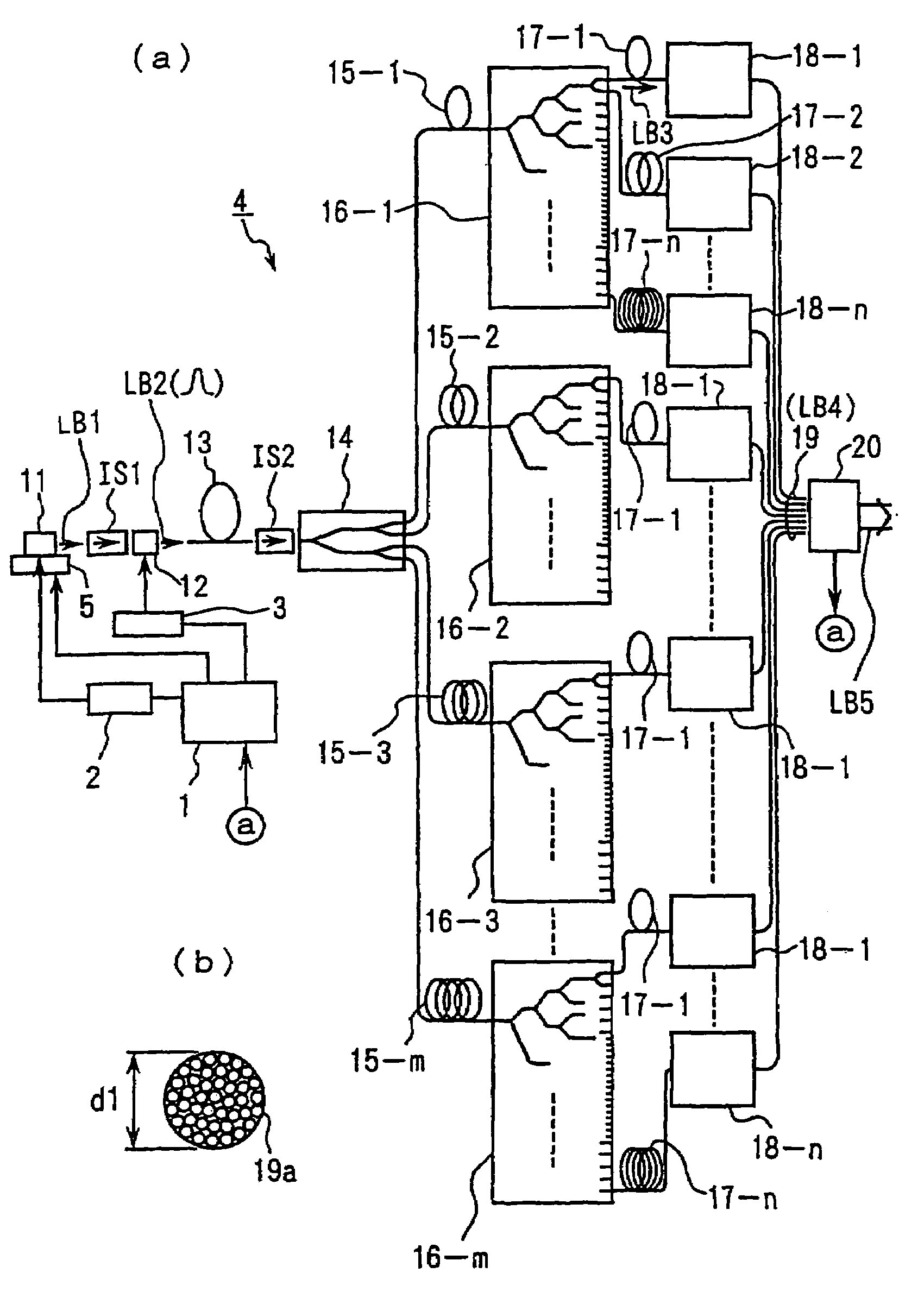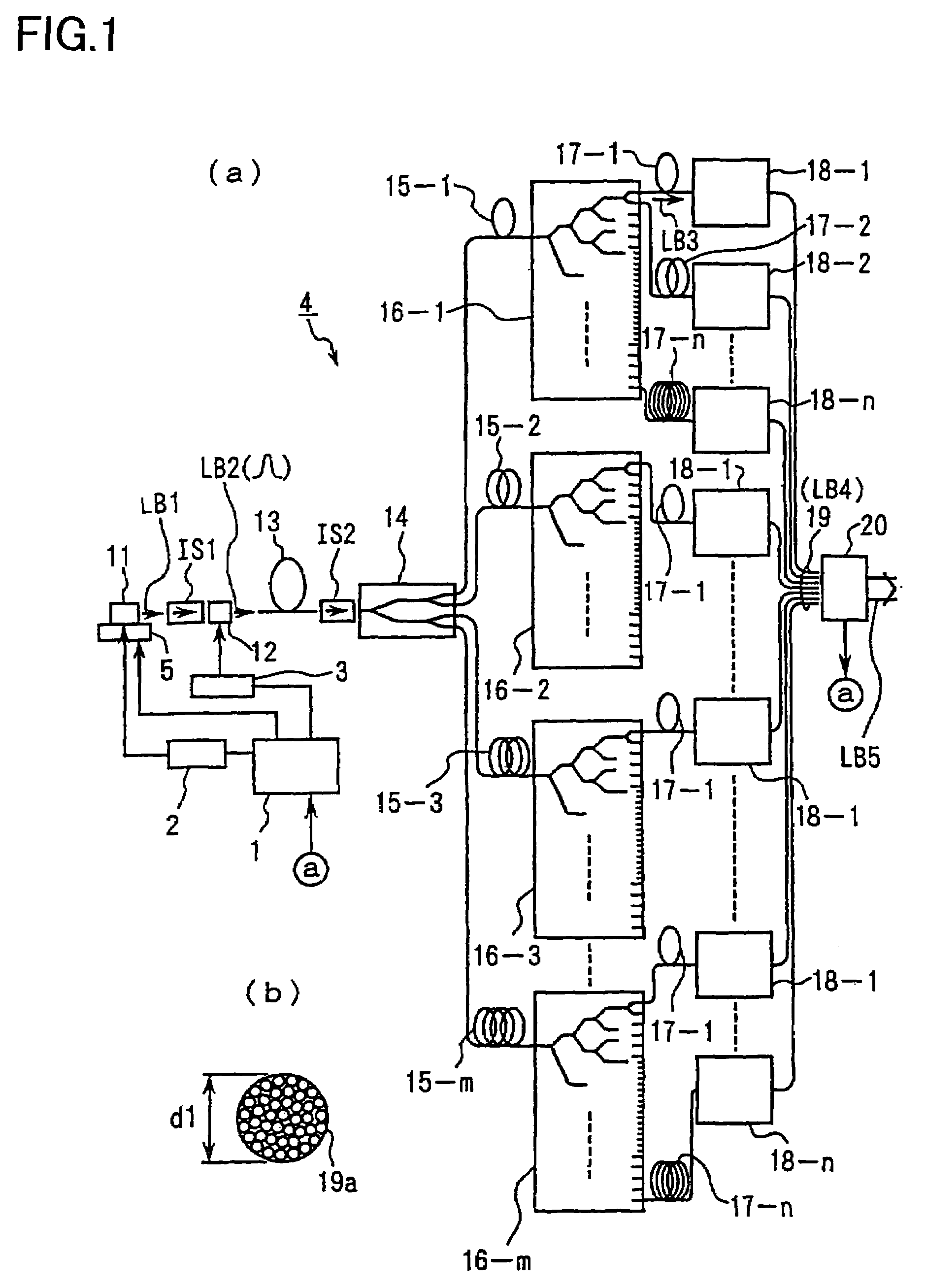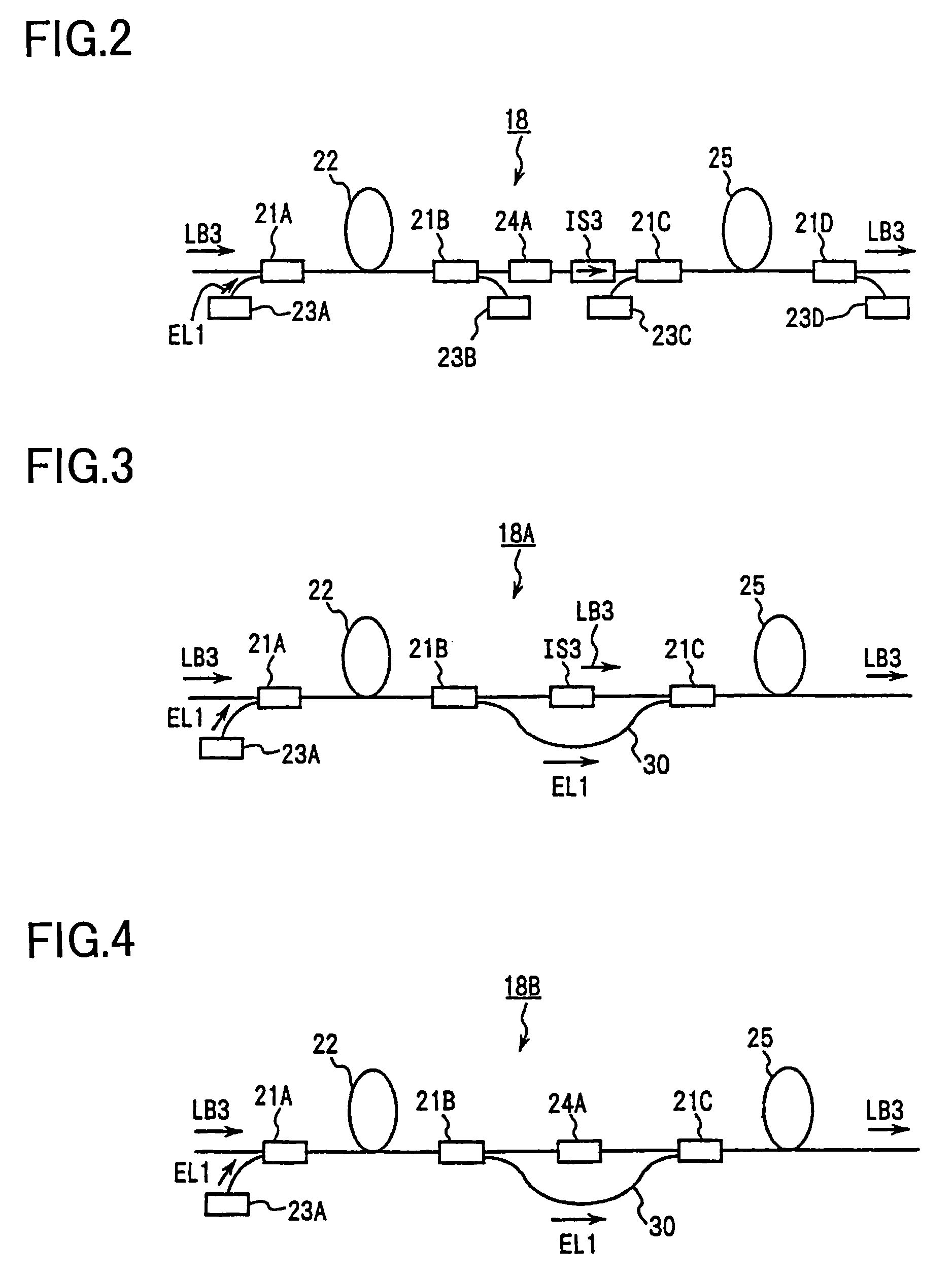Exposure apparatus with laser device
a laser device and laser device technology, applied in the field of exposure apparatus, can solve the problems of increasing the difficulty of chromatic aberration compensation, increasing the complexity of configuration, increasing the cost, etc., and achieves the effect of facilitating alignment, increasing the maintainability of the apparatus, and miniaturizing the exposure apparatus
- Summary
- Abstract
- Description
- Claims
- Application Information
AI Technical Summary
Benefits of technology
Problems solved by technology
Method used
Image
Examples
Embodiment Construction
[0060]Hereinbelow, an example of a preferred embodiment according to the present invention will be described with reference to the accompanying drawings. The present example represents a configuration in which the present invention is applied to an ultraviolet light generator that can be used as a projection exposure apparatus such as a stepper method or a step-and-scan method, or as a light source for alignment and various tests.
[0061]FIG. 1A shows an ultraviolet light generator according to the present example. Referring to FIG. 1A, a single wavelength oscillatory laser 11, which is provided as a laser light generation section, generates a laser beam LB1 that is formed of a continuous wave (CW) having a narrow spectral width and that has a wavelength of 1.544 μm. The laser beam LB1 is incident on an optical modulating device 12, which is provided as an optical modulator, via an isolator IS1 provided for blocking reverse light. The laser beam LB1 is converted therein into a laser b...
PUM
| Property | Measurement | Unit |
|---|---|---|
| wavelength | aaaaa | aaaaa |
| wavelength | aaaaa | aaaaa |
| wavelength | aaaaa | aaaaa |
Abstract
Description
Claims
Application Information
 Login to View More
Login to View More - R&D
- Intellectual Property
- Life Sciences
- Materials
- Tech Scout
- Unparalleled Data Quality
- Higher Quality Content
- 60% Fewer Hallucinations
Browse by: Latest US Patents, China's latest patents, Technical Efficacy Thesaurus, Application Domain, Technology Topic, Popular Technical Reports.
© 2025 PatSnap. All rights reserved.Legal|Privacy policy|Modern Slavery Act Transparency Statement|Sitemap|About US| Contact US: help@patsnap.com



